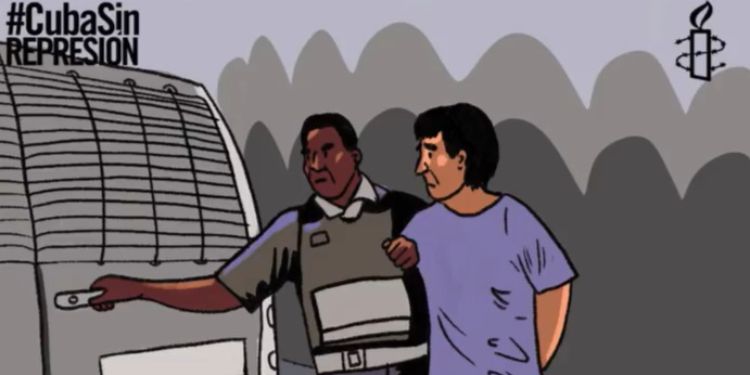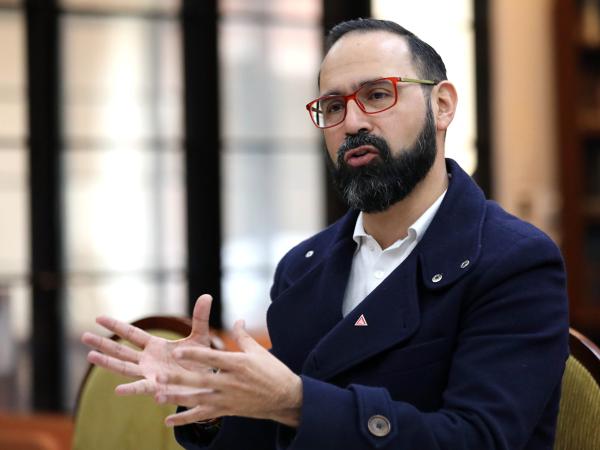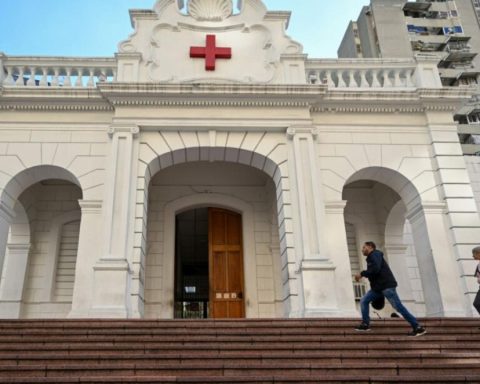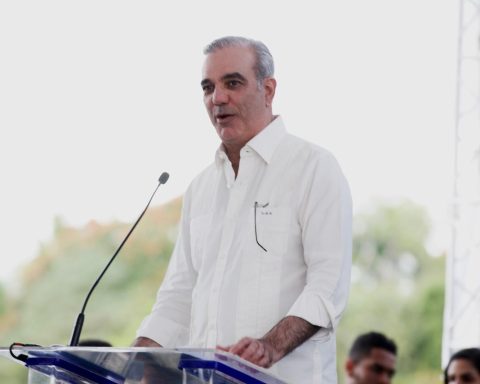MIAMI, United States. – Amnesty International (AI) denounced This Tuesday, four systematic tactics that the Cuban regime uses to repress opponents and critical voices were exposed. These include internet shutdowns, brief detentions, forced unemployment and criminalization of dissent.
On its X social media account, the non-governmental organization noted that short-term detentions, for example, serve as tools of intimidation. “Detaining someone for a few hours or days sends a clear message of terror to those who dissent,” AI stressed.
Another repressive tactic mentioned by the organization is forced unemployment. Authorities fire people from their jobs when they criticize government policies or demand changes, thereby forcing them “into conformity.” AI stressed that this practice seeks to impose even greater control over the population.
The organization also denounced the use of massive and selective internet shutdowns by the Cuban government to silence protests and prevent activists and opponents from accessing social media. These actions have become a key tool for the regime in its effort to control information and communication within the country.
Threats of criminal prosecution are another strategy used by the regime to coerce opponents. According to Amnesty, many of these people end up being prosecuted and sentenced to prison terms. The organization stated that the Cuban authorities “threaten opponents with criminal proceedings if they do not give up their struggles for respect for human rights.”
In June of this year, AI also denounced the Cuban regime for its repressive response to peaceful protests on the island. The organization exposed how the Government of Miguel Díaz-Canel has reacted to citizens’ demands with tactics of repression, censorship and arbitrary arrests.
Cuba has been the scene of numerous spontaneous protests where citizens have taken to the streets demanding basic needs, freedom and political change. Amnesty International recalled the events of March 17 and 18 in Santiago de Cubawhere the population took to the streets to demand access to food, electricity and fundamental freedoms. The government’s response was immediate and forceful: suspension of the internet, deployment of security forces, arbitrary arrests and prohibition of recordings by citizens.
During April and MayAI also documented how authorities again resorted to arbitrary detentions and censorship as mechanisms to quell popular discontent.
“The economic crisis in Cuba, coupled with the government’s inability to meet basic needs and the systematic repression of freedom of expression and peaceful assembly, predict more protests in 2024,” AI warned.
The organization also urged President Miguel Díaz-Canel to respect the human rights of Cuban citizens and demanded an immediate end to repression, the release of people unjustly imprisoned for demanding human rights, and respect for the right to peaceful protest.
Follow our channel WhatsApp. Receive the information from CubaNet on your cell phone through Telegram.

















